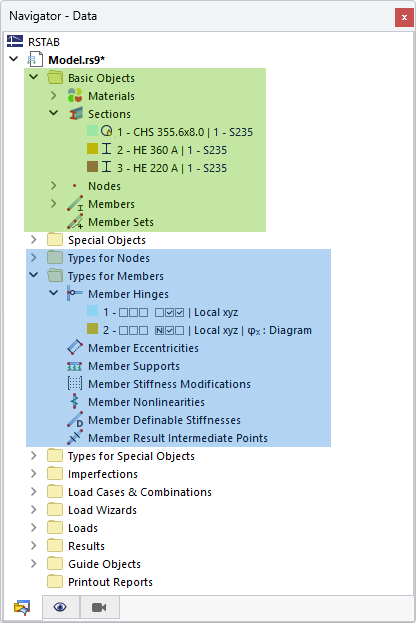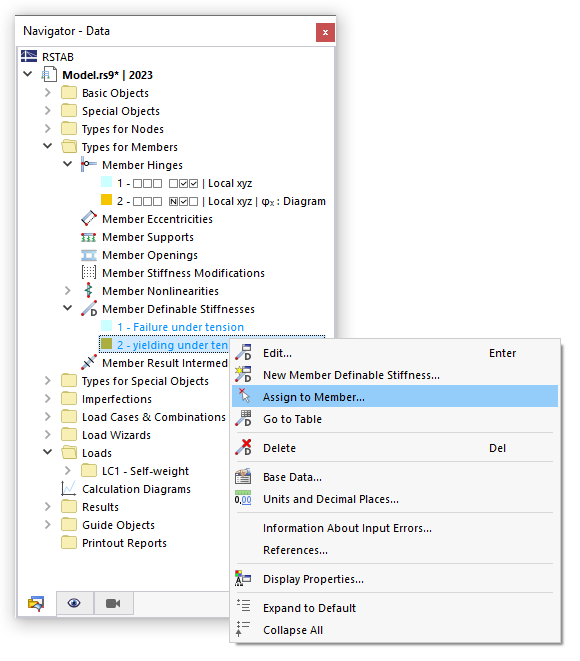Each model is defined by structural objects. These objects fulfill a certain function in the structural system. For example, a nodal support or a member represent objects of the Structure type, but not a dimension line or a line grid. The geometric and stiffness-related properties of a structural object are taken into account in the structural analysis of the model. This way, the length, material, member type, and cross-section of a member have an effect on the stiffness, and thus on the distribution of internal forces and moments in the system.
The structural data are organized in the navigator and in the table as follows: The Basic Objects category manages elementary structural objects such as nodes or members. The Types categories describe specific properties of the basic objects, such as supports of nodes or members.
The table manages the basic objects and the corresponding types in the Structure category.
In the input dialog boxes, the basic objects are interactively linked to the types. This way, types can be redefined without leaving the dialog box, or properties can be graphically assigned as types to a basic object (see the image Edit Member Support ).
Example
A member represents a basic object. You want to provide this member with a hinge and a nonlinearity. You can activate these additional properties in the "Main" tab. Two new tabs are now available in the dialog box. In these tabs, you can select the "Member hinge" and the "Member nonlinearity" properties from the lists or redefine them to assign them to the member.




